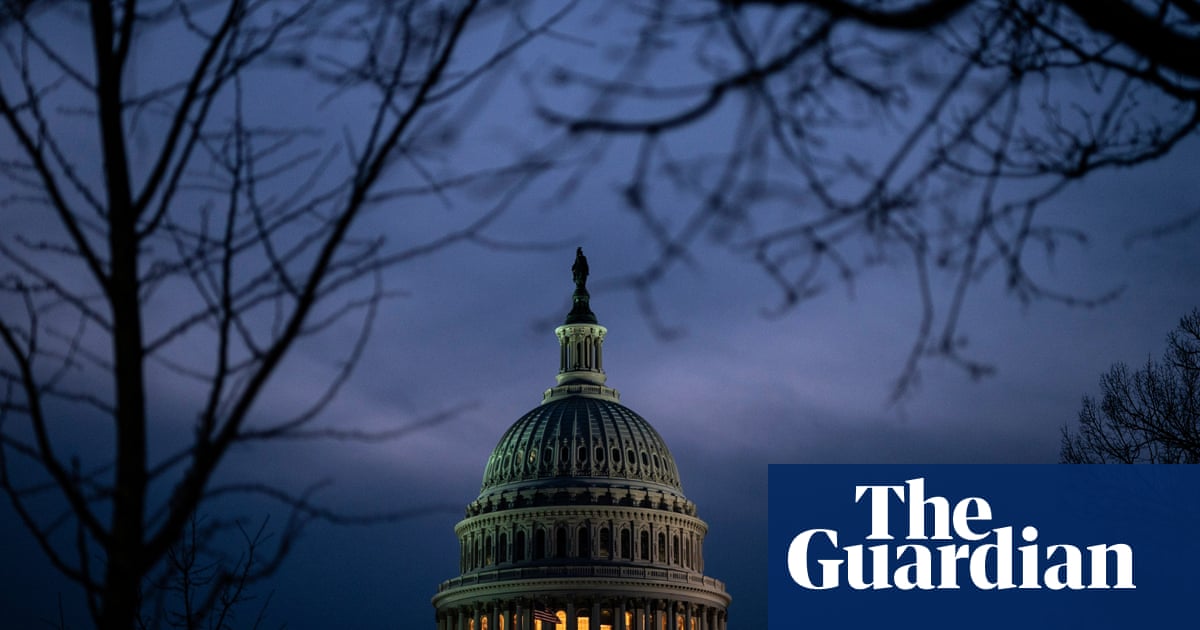A group of 12 House Democratic military veterans have thrown their weight behind efforts to constrain Donald Trump’s military authority, announcing they will support a War Powers Act resolution in response to the US president’s go ahead for airstrikes on Iranian nuclear facilities.
The veterans – some of whom served in Iraq and Afghanistan – were strongly critical of Trump’s decision to launch what they called “preventive air strikes” without US congressional approval, drawing explicit parallels to the run-up to some of America’s longest recent wars.
“Twenty years ago, in their rush to appear strong and tough, politicians – from both parties – failed to ask the hard questions before starting wars in Iraq and Afghanistan,” theywrote in a letterled by Representative Pat Ryan to Trump sent on Monday. “We refuse to make those same mistakes.”
Their intervention comes as multiple war powers resolutions are gaining momentum on Capitol Hill, with the Senate minority leader, Chuck Schumer, pushing for a vote as early as this week to rein in the president’s military actions. The veterans did not specify which measure they would support, as competing versions are being drafted by different Democratic factions alongside a bipartisan effort.
The War Powers Resolution of 1973 was enacted to limit the US president’s ability to commit armed forces to fight abroad without congressional consent in the form of a vote.
Representatives Thomas Massie, a Kentucky Republican, and Ro Khanna, a California Democrat, have beenchampioning one bipartisan resolution, while the ranking Democrats on the House foreign affairs, armed services and intelligence committees are preparing an alternative,according to Punchbowl News.
Democratic aides described the latter to the outlet as providing cover for members uncomfortable with backing the Massie-Khanna approach, though lawmakers will not be discouraged from supporting both measures.
The adamance against the legality of America’s involvement has only intensified since Trump’s Saturday night strikes on three Iranian nuclear sites, and the line from centrist to progressiveDemocratshas been to charge the president with executive overreach.
The New York representative Alexandria Ocasio-Cortez called for Trump’s impeachment, describing the attacks as “a grave violation of the constitution and congressional war powers”, while the House minority leader, Hakeem Jeffries, accused the president of misleading Americans and dramatically increasing the risk of war.
For the 12 veteran House members, the issue cuts to the heart of their military oath.
“We all swore an oath to support and defend the Constitution. Article 1 Section 8 explicitly requires a vote by Congress to declare war,” they wrote, demanding clear answers about military objectives, estimated costs and potential American casualties before any escalation.
The signatories included Representatives Gilbert Ray Cisneros Jr, Eugene Simon Vindman, Chris Deluzio, Jimmy Panetta and Ted Lieu.
Still, their letter walked a careful line on the broader Middle East conflict, labeling Iran as “evil” and pledging continued support for Israel while warning against the strategic limitations of military action. “While destroying nuclear sites may achieve initial tactical success, it far from guarantees longterm strategic victory,” they argued.
The dispute has built on uncomfortable divisions within Trump’s own party, most notably with conservative influencers and independent news media that lean to the right, with Massie and Senator Rand Paul emerging as Congress’s most vocal Republican critics of the Iran strikes.
But Trump has since escalated his rhetoric, posting on Truth Social about potential “regime change” in Iran and asking: “MAKE IRAN GREAT AGAIN, why wouldn’t there be a Regime change??? MIGA!!!”
Congressional leaders have also expressed frustration over the administration’s failure to provide adequate consultation before the weekend operation.
While Schumer received a call from Trump officials, he wasreportedly not toldwhich country would be targeted, and Jeffries “could not be reached until after” the strikes had begun, according to the White House press secretary, Karoline Leavitt.
